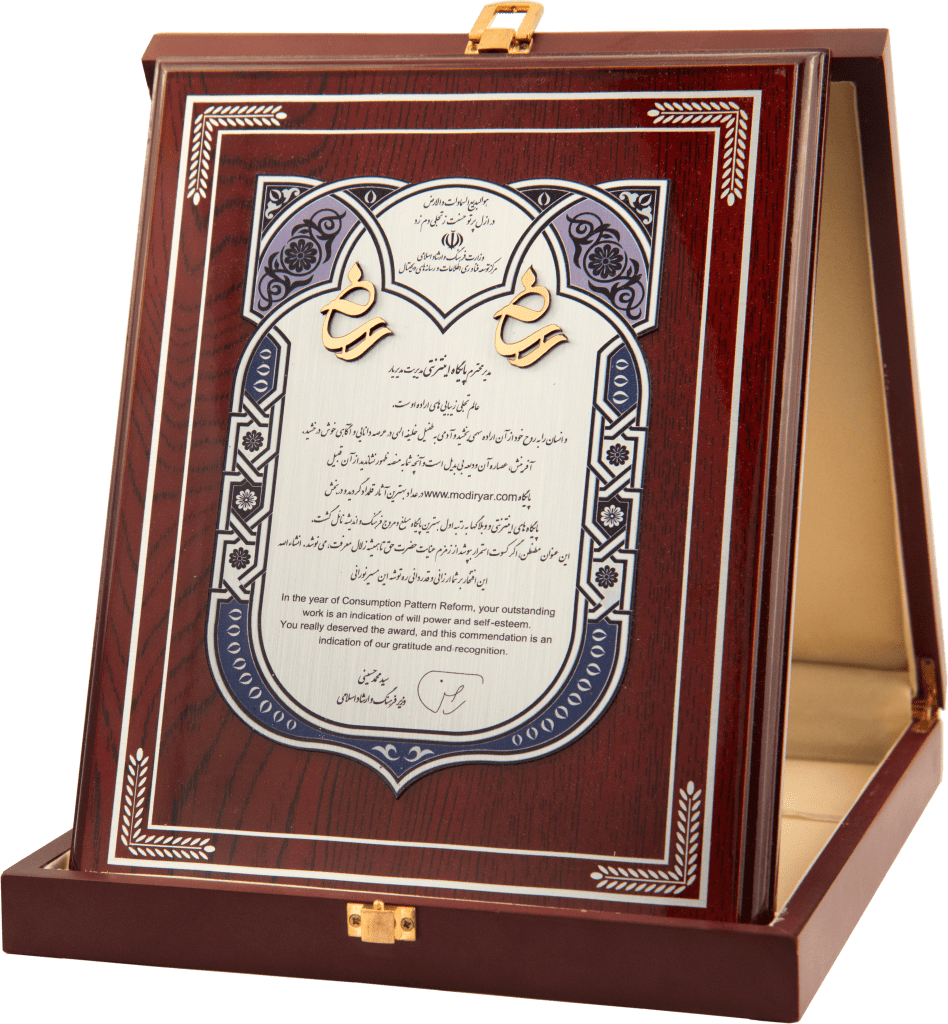اگزیستانس(existence) به معنی وجود است. اولین بار، سورن کیرکگارد فیلسوف دانمارکی، این کلمه را به معنای وجود واقعی انسان به کار برد. وجود انسان به عنوان یک موجود خودآگاه؛ یعنی موجودی که از خودش به طور روشن و بی واسطه آگاه است.
مکتب اگزیستانسیالیسم یا مکتب اصالت وجود که یکی از مکاتب فلسفی است، چنین انسانی را مبداء فلسفه قرار می دهد.
وجه تسمیه این مکتب، این است که بنابر نظر فلاسفه اگزیستانس وجود و هستی هر چیز، بالاتر و متعالی تر ازماهیت و چیستی آن چیز می باشد. همه ما حقیقتا با وجود اشیا سر و کار داریم و اگر درست توجه کنیم، خود را غوطه ور در وجود جهان و موجودات آن می یابیم. بنابراین اصالت با وجود می باشد. (اگزیستانسیالیسم یعنی مکتب اصالت وجود.)
این فلسفه توسط سورن کیرکگارد در قرن نوزدهم به وجود آمد. او با بعضی از سنت های فلسفی که در زمانش رواج داشت، مخالفت نشان داد؛ زیرا عقیده اش این بود که این فلسفه ها چه راست باشند و چه دروغ، ارتباطی با مسائلی که انسان عملا در زندگی با آن ها روبرو است، ندارند.
در عوض، مسائل واقعی فلسفی چنین مسائلی هستند:
مقصود اصلی حیات انسان چیست؟ به هستی انسان چه معنایی می توان داد؟ غایت و هدف رویدادهای انسانی؛ انسانی که دلتنگ، پوچ و بی معنی است، چیست؟
او گفت: پرسش اساسی، معنای وجود می باشد. یعنی این سوال که حقیقت وجود چیست؟
اما این پرسش نزد عقل بی معناست؛ زیرا عقل از راهیابی به معنای آن ناتوان است. کیرکگارد نتیجه گرفت:
پرسش درباره چیستی انسانیت، زندگی و جهان، پرسش هایی است که همه با آن دست به گریبانند، با این وجود عقل و فلسفه سنتی، هیچ پاسخی نمی تواند به آن ها بدهد.
بنابراین، انسان نمی تواند از راه عقل به شناخت یقینی برسد. تجربه حسی و آگاهی تاریخی ما همواره دستخوش تغییر است. انسان بودن یعنی زیستن در مخمصه ای همراه با ترس و اضطراب. به طور کلی بخشی از وجود انسان، حیوانی و پاره ای عقلانی است و این تعارض، حل شدنی نیست.
پس نتیجه می گیریم که عقل نمی تواند راهنمای ما باشد؛ بلکه تنها راه نجات انسان از جهل این است که وضع و حالت غم انگیزی را که در آن گرفتار است، بشناسد و سپس با اطاعت محض، یعنی نه به وسیله عقل و منطق، بلکه با نور ایمان از این وضعیت و جهل خارج گردد.
اگزیستانسیالیسم کیرکگارد، اگزیستانسیالیسم دینی بود؛ یعنی راه نجات انسان را در ایمان به خدا می دانست؛ اما بیشتر فیلسوفان این مکتب که پس از او آمدند و متعلق به قرن بیستم بودند، دیندار نبودند.
در آثار آن ها، سوال اساسی فلسفه اگزیستانس این است که انسان در این عالم نامعقول و بی معنا چگونه باید زندگی کند. آن ها فلسفه های سنتی و حتی فلسفه تحلیلی را بیهوده دانستند؛ زیرا اعتقاد داشتند که این فلسفه ها با مسائل واقعی بشر کاری ندارند.
اعتقاد آن ها این بود که انسان در زندگی با دنیایی توضیح ناپذیر روبروست.(مثلا کودکی بی گناه توسط سربازان دشمن کشته می شود و هزاران نمونه مانند این.) جهان پیرامون ما، سرشت انسانی و سرشت هستی به گونه ای است که آشوب درونی و اضطراب را بر می انگیزد.
فلاسفه اگزیستانس برای تبیین این مسائل و حل آن ها، هر یک به راهی رفتند.
به عنوان نمونه، فردریش نیچه، فیلسوف آلمانی، اظهار داشت که راه حل، کنار گذاشتن عقلانیت و شک کردن به هرچه شک پذیر باشد، حتی به اصول اخلاق و ارزش ها است. بدین ترتیب ، دیگر نه عقیده و یقینی باقی می ماند و نه اخلاق و ارزشی. چنین تفکراتی بود که در قرن بیستم، منتهی به مکتب پوچ گرایی( نهیلیسم ) گردید.
فلسفه اگزیستانس در حیات فکری و عقلی معاصر تاثیر بسیاری گذاشته است. از هم پاشیدگی و فرو ریختگی اروپاپس از جنگ های جهانی، در همگان این عقیده را ایجاد کرد که افکار و ارزشهای متداول را بی اعتبار و خالی از معنا بدانند و به این نتیجه برسند که در دنیایی که در آن زندگی می کنند، عقل و منطق نه تنها حاکم نیست، بلکه اصلا به هیچ دردی هم نمی خورد.
فلسفه اگزیستانس یا فلسفه اصالت وجود، فلسفه عمیقی است و اوج آن را می توان در اثر بزرگ فیلسوف آلمانیمارتین هایدگر، به نام وجود و زمان یافت.
*منبع: http://daneshnameh.roshd.ir
WHAT IS EXISTENTIALISM?
Bob Corbett
Existentialism. A difficult term to define and an odd movement. Odd because most thinkers whom the intellectual world categorizes as existentialists are people who deny they are that. And, two of the people whom nearly everyone points to as important to the movement, Soren Kierkegaard and Fredrich Nietzsche, are both too early in time to be in the group, thus are usually called “precursorers,” but studied and treated as members of the group.
Major figures like Jean-Paul Sartre, Martin Heidegger and Albert Camus all flatly deny they are in the movement (at least at times they did), yet everyone says they are central.
Secondly, the term is very difficult, if not totally impossible to define. What is existentialism? I’ve been asked that a thousand times, have read most intro type books on the field, have spent much of my teaching life “doing” Existentialism, yet cannot give a coherent and relatively short definition. It’s sort of a spirit or aura of how one responds to human existence, much easier to characterize (rather than define) in negative terms — what Existentialism is NOT that philosophy generally is — than in positive terms of a definition.
However, I can define certain characterists that most Existentialists (and precursors to Existentialism) seem to share:
- they are obsessed with how to live one’s life and believe that philosophical and psychological inquiry can help.
- they believe there are certain questions that everyone must deal with (if they are to take human life seriously), and that these are special — existential — questions. Questions such as death, the meaning of human existence, the place of God in human existence, the meaning of value, interpersonal relationship, the place of self-reflective conscious knowledge of one’s self in existing.
Note that the existentialists on this characterization don’t pay much attention to “social” questions such as the politics of life and what “social” responsibility the society or state has. They focus almost exclusively on the individual. - By and large Existentialists believe that life is very difficult and that it doesn’t have an “objective” or universally known value, but that the individual must create value by affiriming it and living it, not by talking about it.
- Existential choices and values are primarily demonstrated in ACT not in words.
- Given that one is focusing on individual existence and the “existential” struggles (that is, in making decisions that are meaningful in everyday life), they often find that literary characterizations rather than more abstract philosophical thinking, are the best ways to elucidate existential struggles.
- They tend to take freedom of the will, the human power to do or not do, as absolutely obvious. Now and again there are arguments for free will in Existentialist literature, but even in these arguments, one gets the distinct sense that the arguments are not for themselves, but for “outsiders.” Inside the movement, free will is axiomatic, it is intuitively obvious, it is the backdrop of all else that goes on.
There are certainly exceptions to each of these things, but this is sort of a placing of the existentialist-like positions.
======================================
Another way of doing it is much simpler. There are about a dozen major thinkers who are characterized as “Existentilist” whom most scholars agree are existentialist. Thus, Existentialism is what these thinkers hold and write. I think that in the end, this is probably the best way to understand it.
In response to a question about the above:
I want to address, at least for a first round, the question of decision making for the Existentialists. First of all there is a split among them on their concern for decisions and actions.
One of the most important thinkers in this movement, Martin Heidegger, is very little concerned with deciding and acting, but is concerned with knowing. It not what you DO that matters to Heidegger, but how you KNOW it and that you KNOW it. Jean-Paul Sartre on the other hand is profoundly concerned with acting.
However, in general the Existentialists recognize that human knowledge is limited and fallible. One can be deeply committed to truth and investigation and simply fail to find adequate truth, or get it wrong. Further, unlike science, which can keep searching for generations for an answer and afford to just say: We don’t know yet, in the everyday world, we often simply must do or not do. The moment of decision comes. For the Existentialist one faces these moments of decision with a sense of fallibility and seriousness of purpose, and then RISKS. Sartre is extremely harsh on this point. At one place he says: When I choose I choose for the whole world. Now what can this mean. I think what Sartre is getting at is that first of all when I choose and act, I change the world in some iota. This note gets written or it doesn’t. That has ramifications. It commits me to say what I’m saying. It may change someone who may be affected by my remarks. Others can be too if they hear or read them. And so on. The ripples of actions are like ripples on the sea, they go on and on and on.
By my acts I also begin to define and create the self I am, which is, to some extent a public self. Thus an act is like opening Pandora’s box, it lets out what’s inside the act and there is no getting it back.
That’s not a MORAL point to Sartre, it is an ontological fact, that is, a fact about the world. Not a should or an ought, but a description of a reality about the world and human choice.
If:
- I am a person serious about my acts.
- If they are as uncertain as Sartre describes
- They are as potentially momentuous as he describes
Then:
It’s not surprising that acting, for the Existentialist, is a terrifying responsibility and living and acting is a burden that causes great anxiety for the Existentialists. There is not absolute certainty (for some of the reasons given above and for yet more we can talk about later), thus human acts are the full responsibility of the individual.
Further, in another place in Sartre’s major work, BEING AND NOTHINGNESS, he talks about creating oneself in action. What he means by this is that I, the human, am free. I can make up my own mind about my acts. What I will BE in some final sense is what I make of myself. Thus my acts are not trivial, but definitive of my very self-hood. Again, acting in such a world of freedom, uncertainty and ontological responsibility (as opposed to moral responsibility), is so weighty that the Existentialists nearly recoil from living and acting under the terror of the weight of it all.
Put in the shortest form: Living without certainty and with personal responsibility is a nearly unbearable burden.







